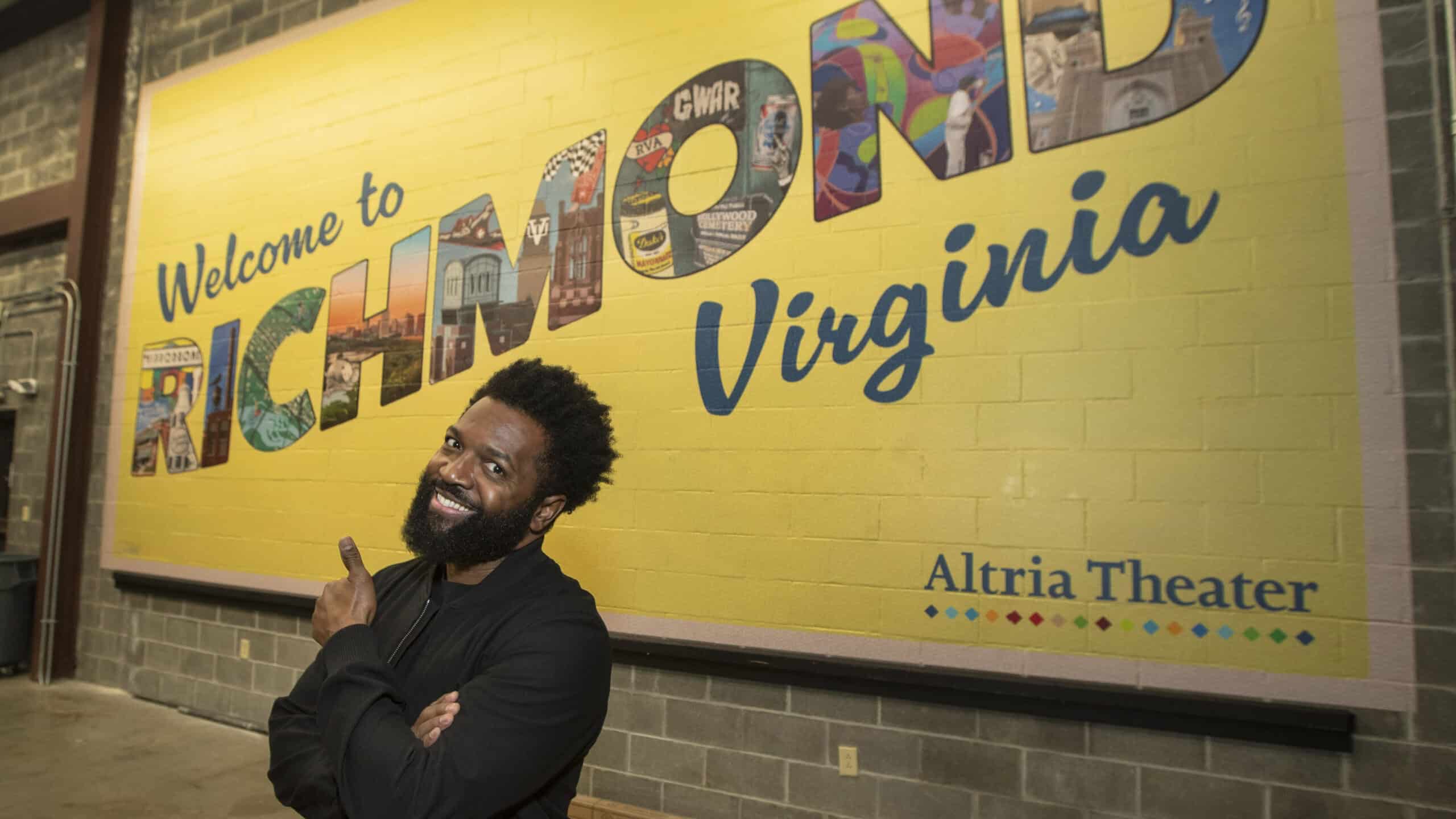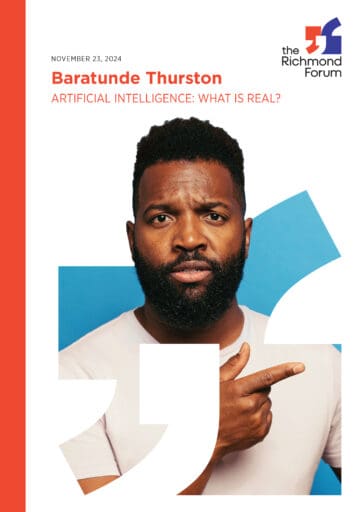Past Event On November 23, 2024
Baratunde Thurston
Artificial Intelligence: What Is Real?
The host and producer of “Life With Machines” uncovered what it will mean to be human as we barrel toward a more digitally integrated future fueled by new technologies like AI.
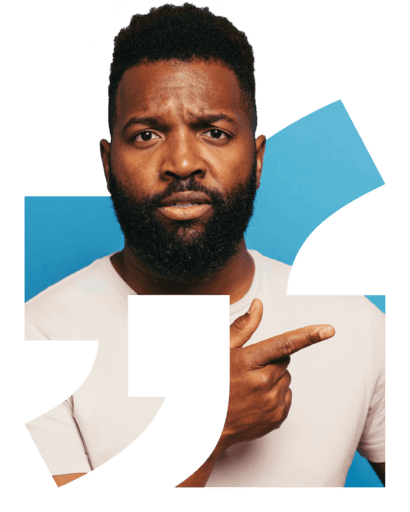
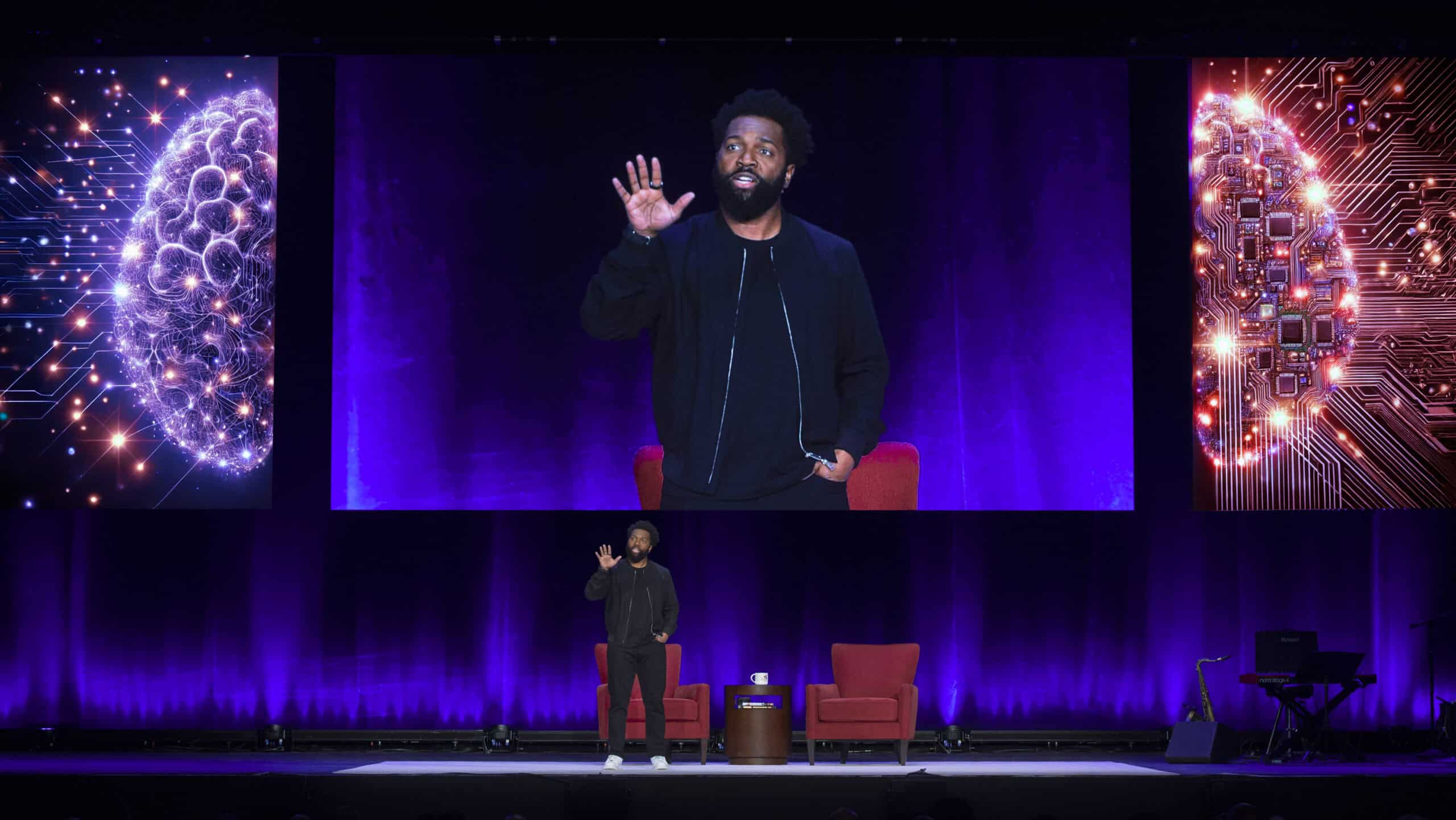
“I wonder if our obsession with intelligence of an artificial nature has us wandering too far from our essential human nature. When spreadsheets can analyze themselves and e-mails can write themselves, when songs can sing themselves and meetings can attend themselves, then what are we going to do with all that time? What will it mean to be human? To be alive?”
Baratunde Thurston
Artificial Intelligence: What Is Real?
November 23, 2024
After Baratunde Thurston’s program, we fed a transcript of the event into ChatGPT. With a few rounds of revisions and some increasingly specific prompting, our virtual reporter penned the summary below. How did it do?
Artificial intelligence is no longer a distant concept—it’s a reality shaping every facet of our lives. At The Richmond Forum, Baratunde Thurston, a storyteller navigating the intersections of technology, humanity, and nature, confronted this pressing question: What does AI mean for us?
Using humor, personal anecdotes, and philosophical insights, Thurston painted a vivid picture of a world at a crossroads—where AI could either strengthen human connections or unravel the very fabric of our shared humanity. “The future,” he insisted, “depends not on the machines, but on our ability to make thoughtful, ethical, and inclusive decisions.”
For Thurston, the release of OpenAI’s ChatGPT marked a pivotal moment in the AI revolution. “It was a surprise to many of us,” he said. “Even people in the industry had predictions about this technology being available, and it blew away most of those predictions.” This, he argued, exemplifies the staggering pace of technological development.
In stark contrast to previous generations, who experienced little change over centuries, today’s tech-fueled world is defined by rapid shifts that affect everything from interpersonal interactions to global warfare. “How do we teach? How do we govern in that kind of environment?” Thurston asked, urging the audience to think deeply about how society adapts to these challenges.
Thurston pushed back against the notion that speed is the ultimate goal of AI. “Just because something is faster doesn’t make it better,” he remarked. “Some things in life we actually may want to slow down—time with people we care about, an enjoyable meal. The things that have the most meaning for us shouldn’t be made efficient.” Instead, he encouraged the audience to harness AI as a tool to create space for deeper, more meaningful human experiences.
“Technology is not just technology anymore. It’s not something that’s isolated over there. It affects how we laugh, how we live, how we love, and all of the actions in between. It’s life.”
– Baratunde Thurston
At the heart of Thurston’s message was a call to use AI to augment, rather than replace, human relationships. He warned against allowing AI to deepen connections with technology at the expense of bonds with each other and the natural world. “It’s a great loss if we use AI to connect more to technology and substitute for connections with our fellow human beings or with the planet we are a part of,” he said. “It’s unavoidable, but we should be more active in choosing.”
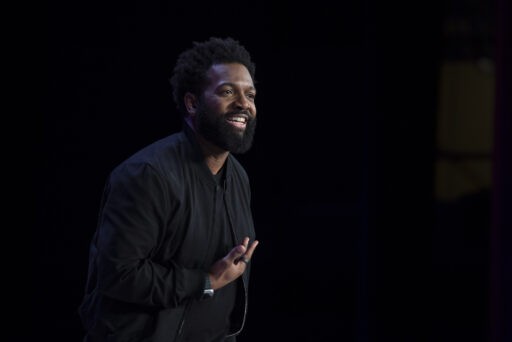
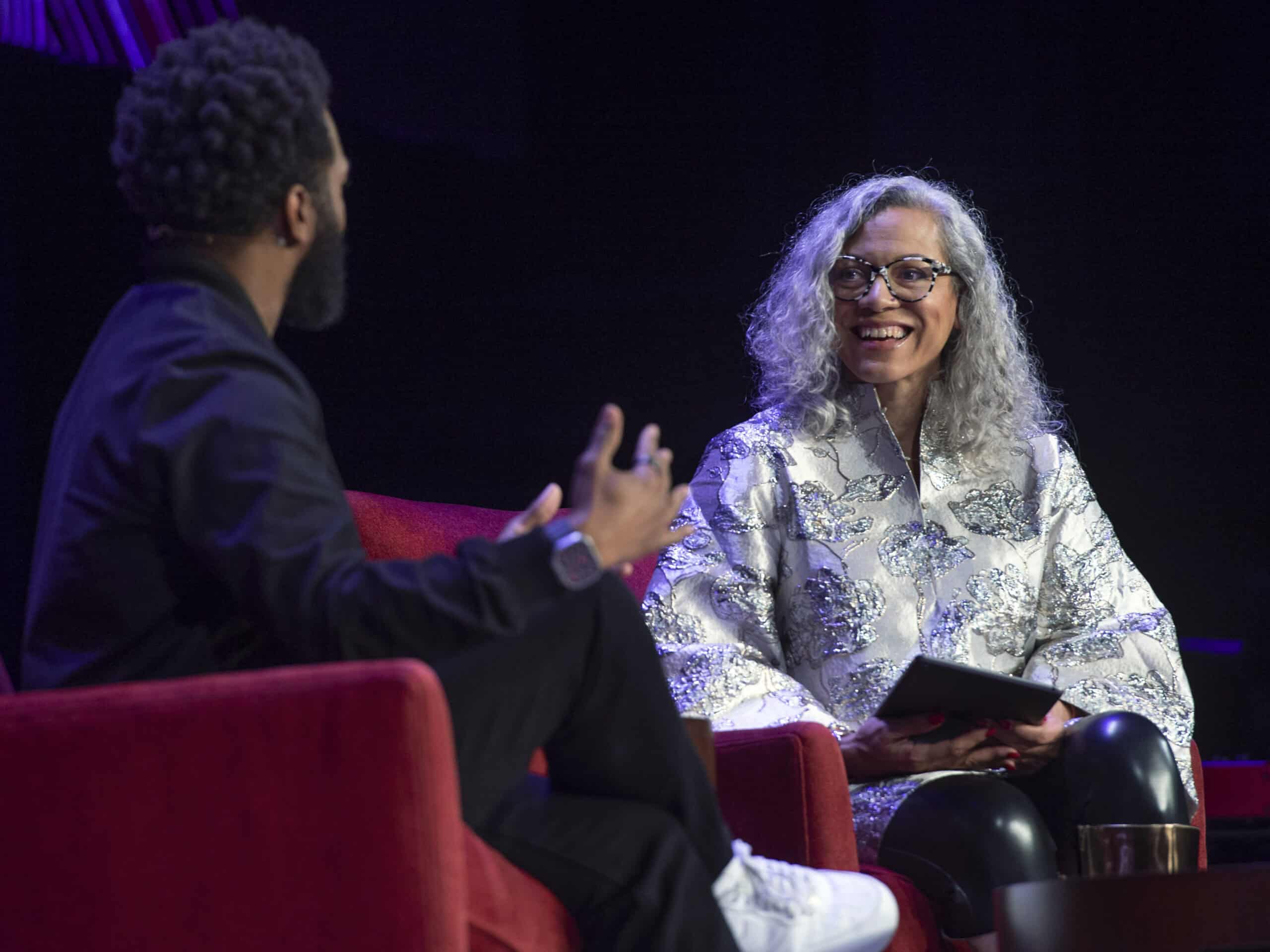
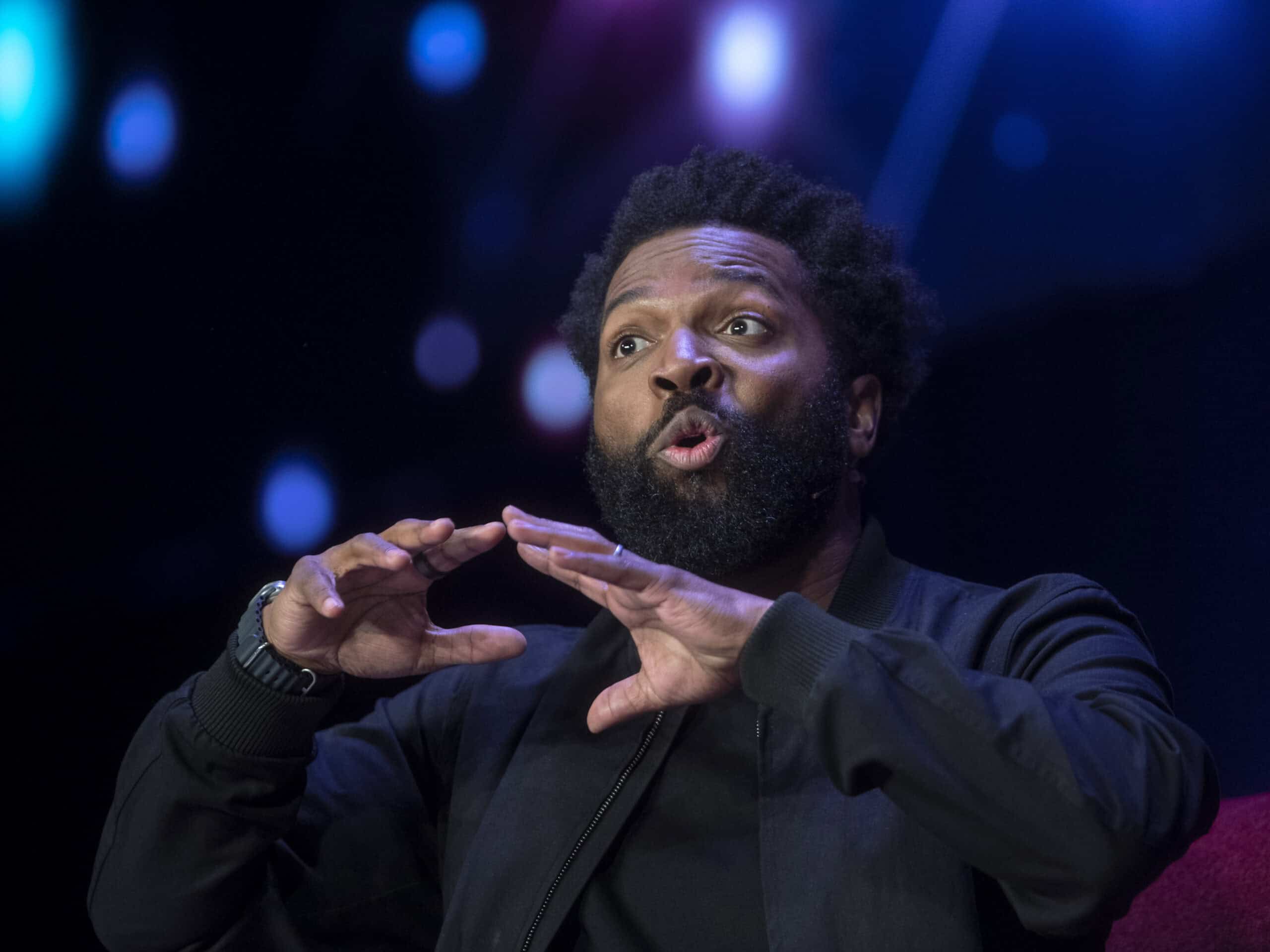
Inclusivity emerged as a central theme in Thurston’s talk. He argued that AI must reflect diverse perspectives and serve the needs of all people. “There’s a value in seeing yourself,” he explained. “It affects your sense of self and self-worth. If we flatten that and standardize everything, then we’re not representing the best of us.”
Thurston described AI as a mirror that reflects our values, biases, and priorities, urging the audience to ensure that the data shaping AI includes the full spectrum of human experiences. “If we want AI to stand as a proxy for all humans, we need to include everyone in its development.”
Thurston proposed a framework for ethical AI centered on consent, control, credit, and compensation. He emphasized the importance of giving individuals sovereignty over their data, recognizing contributions to AI systems, and ensuring fair pay for the value created. “If someone is making money off our contributions,” he noted, “we deserve a little kickback.”
He also called for greater accountability in AI governance, raising critical questions about regulation and oversight. “AI is not a standalone entity,” he reminded the audience. “It’s a reflection of us, and we need to take responsibility for the systems we create.”
Thurston concluded with a powerful invitation to the audience: to reflect on what it means to be human in the age of AI and to actively shape a future where technology complements and enhances human life. “If AI can help us listen to the trees, understand the whales, and see that a stranger is a part of ourselves, then it’s a worthy pursuit,” he said.
Ultimately, Thurston left the audience with a profound challenge: to aim high in creating a future where technology aligns with humanity’s highest values. “The prompt isn’t just to the bots,” he declared. “The prompt is to us.”
Continuing the Conversation
After viewing Straughn’s program, what excites you the most about the discoveries made by the James Webb Space Telescope?
Straughn discussed the importance of funding space exploration. Do you think space exploration is a worthwhile national or global investment? Why or why not?
Straughn stated that she believes evolved, conscious life exists elsewhere in the universe. What implications do you think the study of exoplanet atmospheres could have for the search for extraterrestrial life? What ethical considerations should guide our exploration of other planets?
Straughn addressed some of the ways NASA scientists work together to make exciting new discoveries. How might advancements in telescope technology benefit other fields of science and technology?
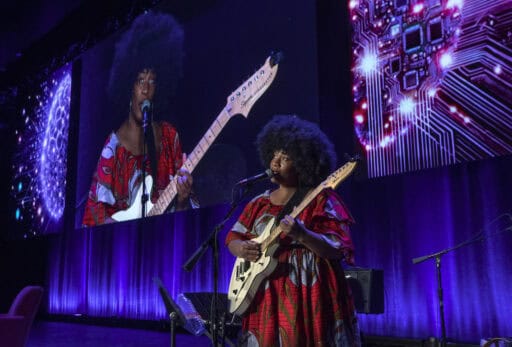
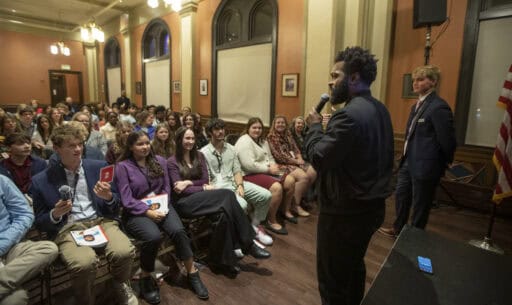
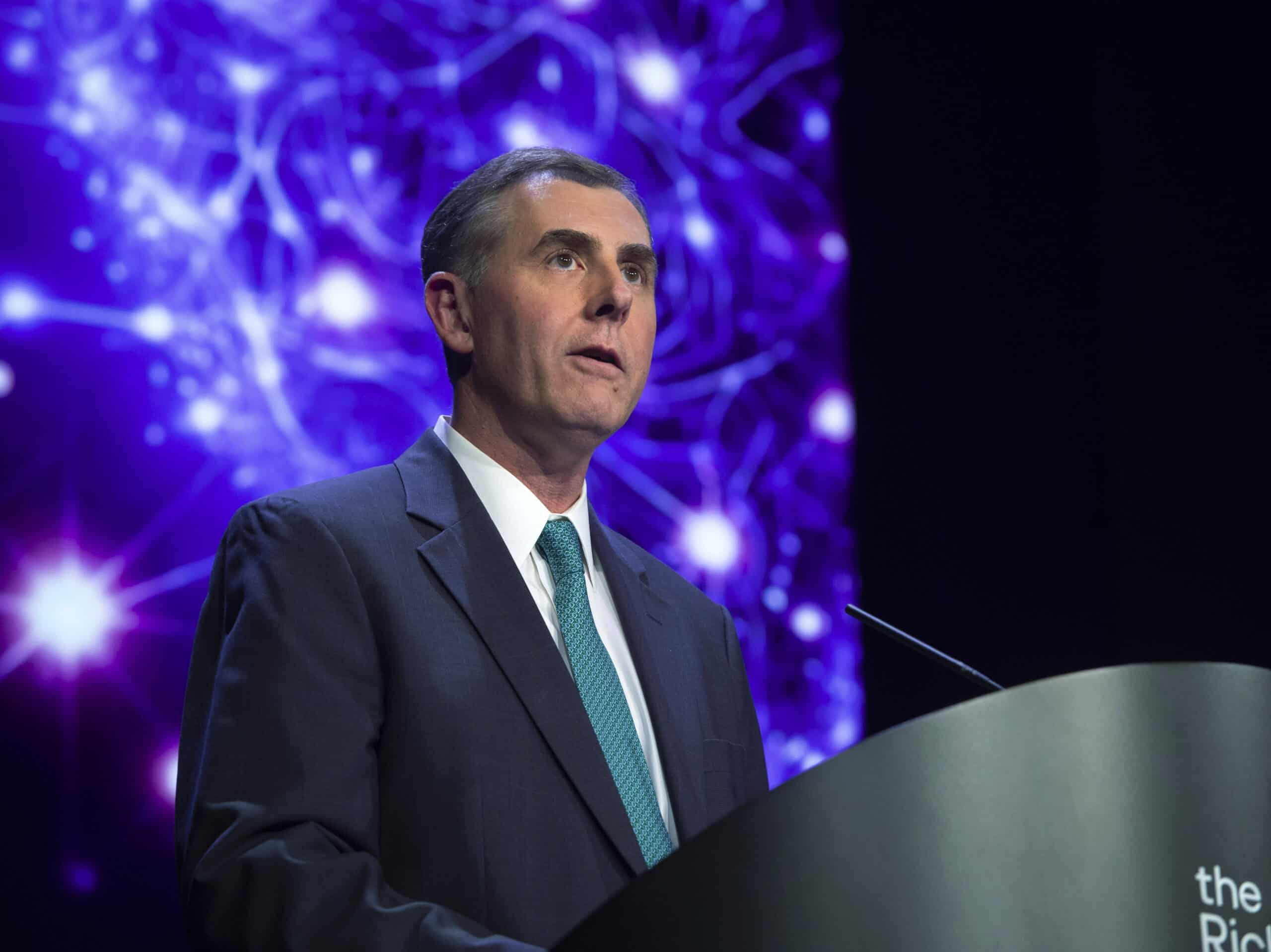
“Mr. Thurston gave a positive, humorous spin on a subject that I believe scares many people. As they say, knowledge is power, and I think he removed some of that fear with the knowledge he shared on the subject.”
– Subscriber Survey Comment
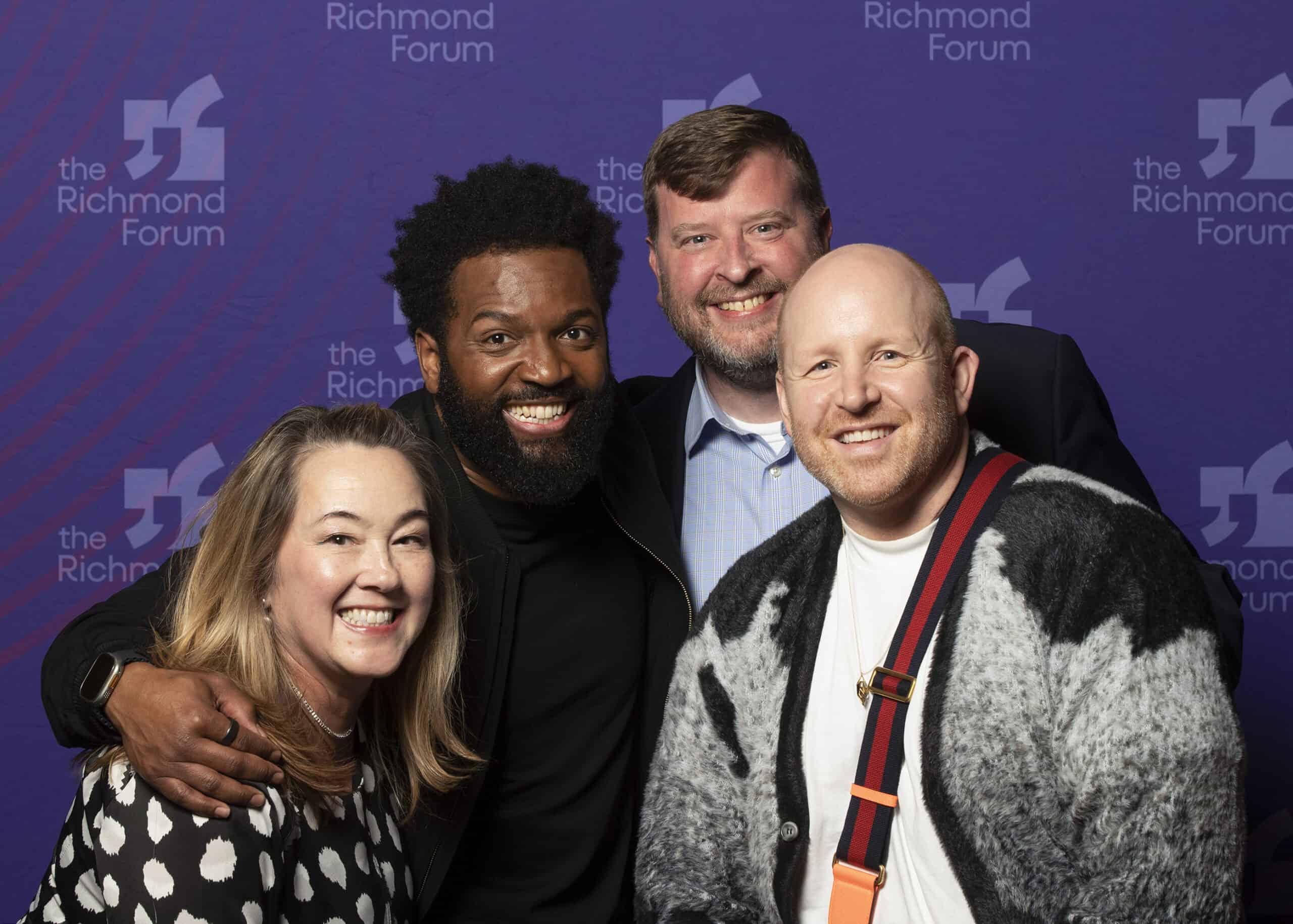
Listen to The Richmond Forum’s AI-generated podcast! In anticipation of Thurston’s program,
we decided to test drive Google’s new NotebookLM. After inputting a few links and resources to the Gemini 1.5-powered platform, a conversational podcast between two nonexistent hosts was born. Listen and let us know your thoughts. How did the robots do?
About Baratunde Thurston
Baratunde Thurston is an Emmy-nominated multi-platform storyteller and producer operating at the intersection of race, technology, democracy, and climate. He is the host of the PBS television series “America Outdoors with Baratunde Thurston,” the creator and host of “How To Citizen with Baratunde” (which Apple named one of its favorite podcasts of 2020), and a founding partner of the new media startup Puck.
Thurston uses his unique ability to integrate and synthesize themes of race, culture, politics, and technology to explain where our nation is — and where we can take it. At Puck, he regularly writes about new developments in AI and their implications across different industries, individuals, and the culture at large. He has appeared and shared these insights on numerous podcasts, including The Progress Network’s “What Could Go Right?” and Techmeme’s “Ride Home.” Thurston has also interviewed dozens of tech leaders on the Webby Award-nominated web series “Lenovo Late Night IT.”
This October, Thurston launched the video podcast, “Life With Machines,” through which he aims to demystify AI and make it personal with a wide range of guests: entrepreneurs, artists, policymakers, technologists, business leaders, creators, educators, and scientists.
His comedic memoir “How to Be Black” is a New York Times bestseller. In 2019, he delivered his speech “How to Deconstruct Racism, One Headline at a Time,” which MSNBC’s Brian Williams called “one of the greatest TED Talks of all time.”
Thurston serves on the boards of Civics Unplugged and the Brooklyn Public Library and lives in Los Angeles, California.
Additional Resources
-
Tune in to Thurston’s new AI podcast
Life With Machines
-
Baratunde’s Tech Origins
How To Citizen
-
Me, Myself, and A.I.
Puck, Baratunde Thurston
Watch Program Highlights
